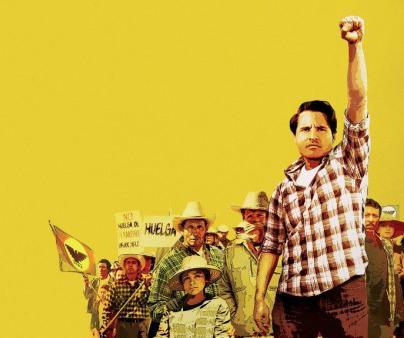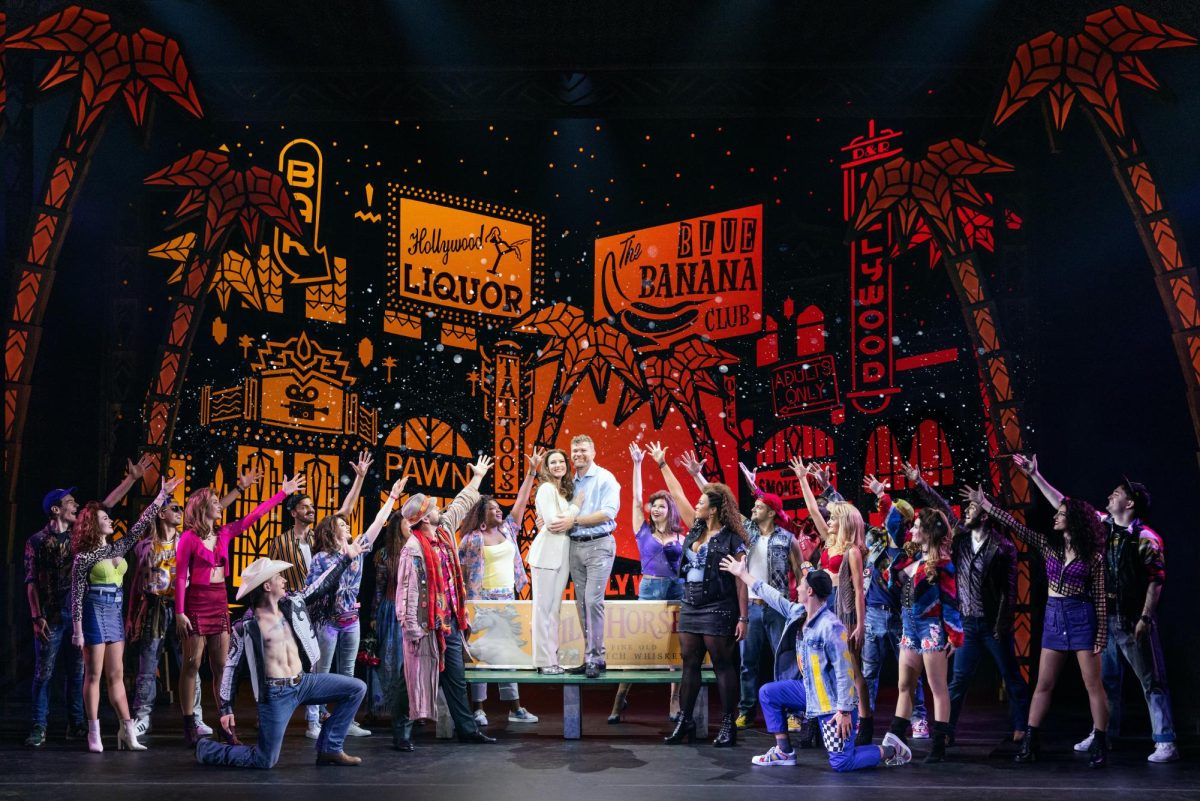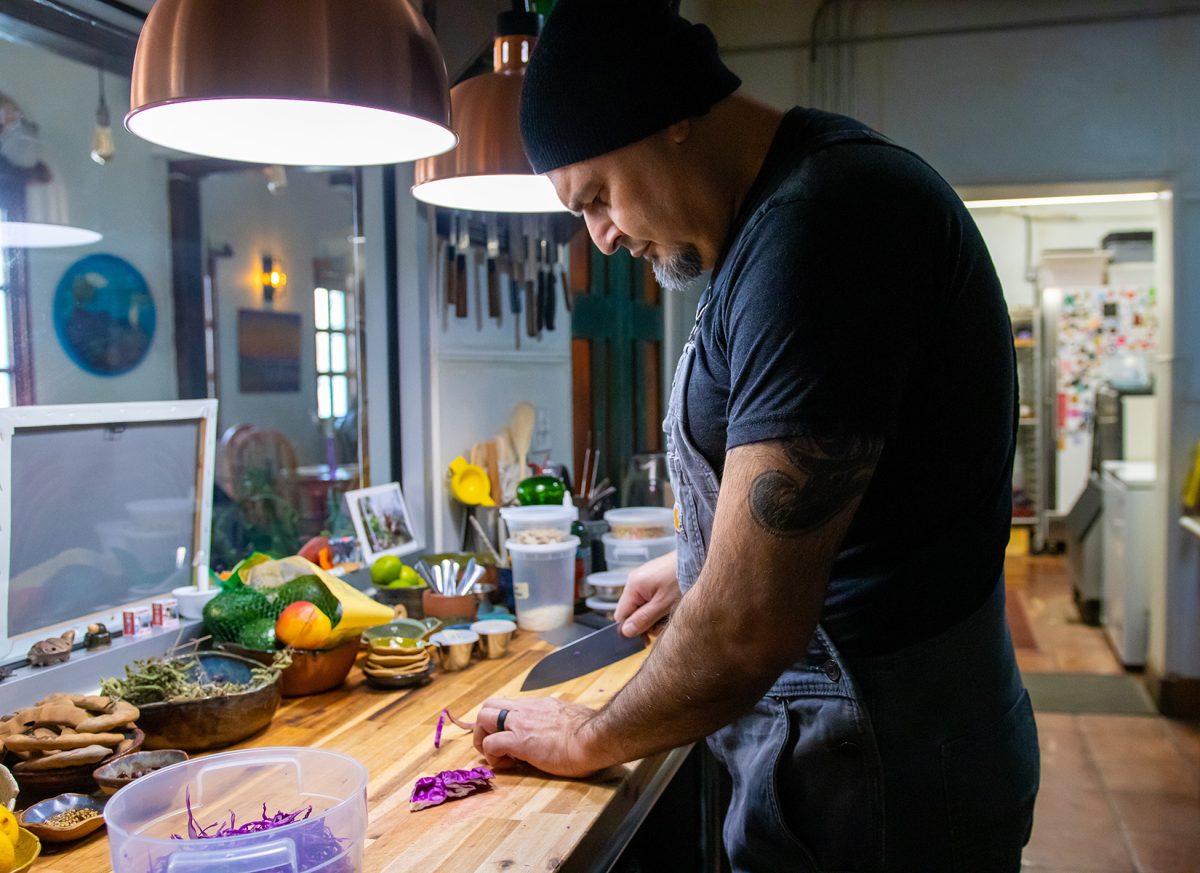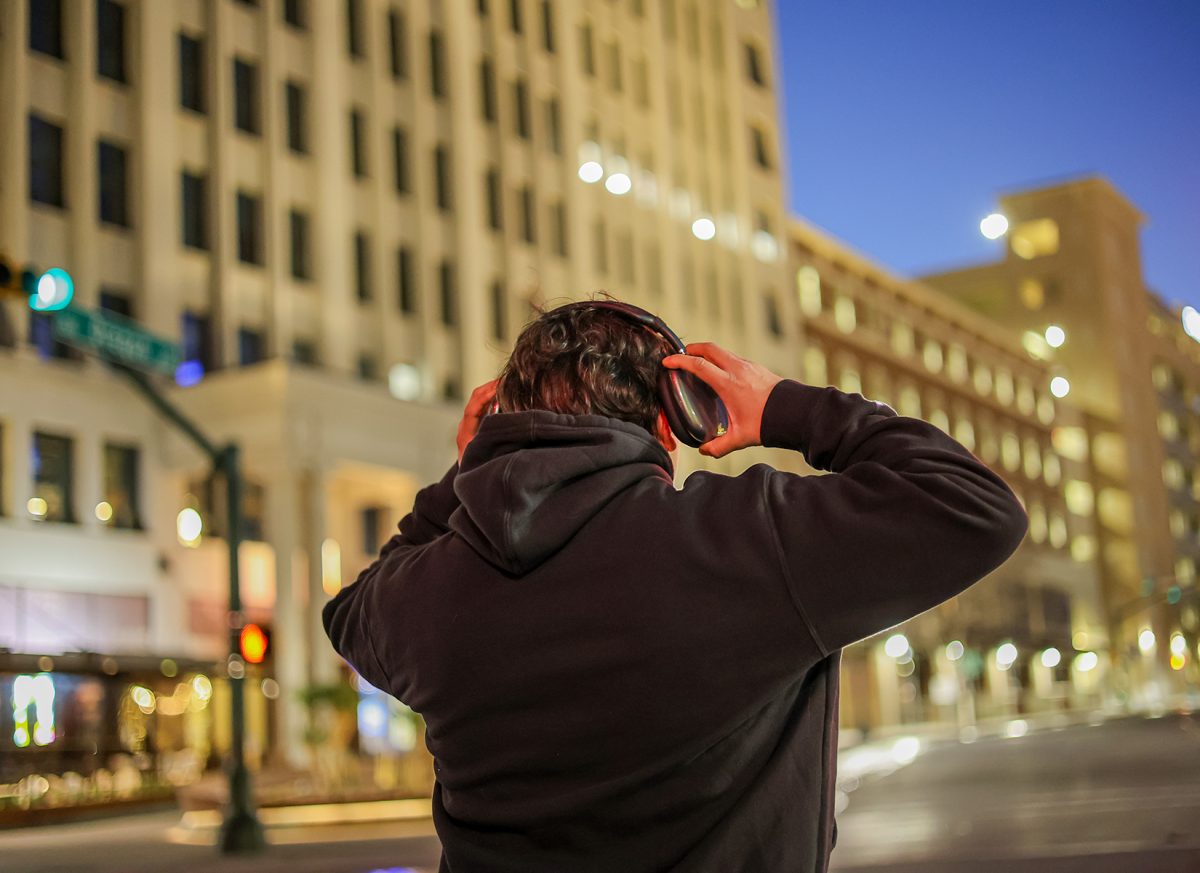Yesterday I had the chance to watch the “Cesar Chavez” movie in a new theater at the Cinemark East Montana. The movie, directed by Diego Luna, is motivating, especially for all Mexican Americans such as myself, who have been brought up with Mexican traditions in this country.
Even though the movie is about the life of Cesar Chavez, played by Michael Peña, and the Chicano Movement it is not exclusively for Hispanics audiences. A universal theme in the movie is social justice and it applies to everyone who does not believe in the injustice and the degradation of humanity.
The plot is basically about the life and the struggles of Cesar Chavez and the people who helped achieve justice not only for Chicanos, but also for all minorities who worked in the fields. The setting is mainly in California, but the impact of the movement reached every corner of the United States and even got to Europe.
American society has an idea about who Cesar Chavez was, but I do not think they know the true extent of his story. The film is a window into the life of the man–not only his legacy, which is important to know.
His ideals and his values are something that the audience can emulate by watching the movie and having a better understanding of who he was and what he stood for.
Chavez accomplished amazing things for migrant farm workers. He created a newspaper and a credit union. He also found creative tactics to protest and fight without violence.
He surrounded himself by people who helped him to advance in the fight for better treatment and equal rights. His wife was a key person pushing and supporting him through everything.
The casting was incredible and represented the Latino community. The film is very believable, and although I was not even born at that time, I felt connected to the story and the message.
The film is filled with the everyday events in the life of Cesar Chavez and the people around him. There are scenes that are very touching, for instance when he fasts to bring the union back together when he felt they were getting off course. Another scene that I found very strong is when his oldest son, Fernando moves out because he feels neglected.
There are also some funny moments in the film. It showed that even in times when you struggle, people could find happiness in religion, music and family gatherings.
One more thing that I really liked was the song at the end in the credits. It is a song called, “Solo le pido a Dios” (I only ask God), performed by Julión Álvarez and his band La Marisoul. I truly invite all of you who are reading this article to take the opportunity to watch this beautiful film, which in my opinion was done in a very inspiring way.





